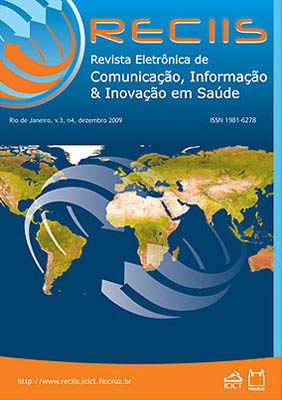Individualized environmental responsibility and complexity in Sweden
DOI:
https://doi.org/10.3395/reciis.v3i4.726Keywords:
Environmental problems, risk, responsibility, action competence, complexity, risk societyAbstract
This article discusses the individualization of environmental responsibility and the requirements to reflect on the environmental consequences of everyday activities. This is done in relation to the idea that awareness of environmental risks and problems will influence environmental activities. 64 Swedish householders’everyday life and sustainable activities has been investigated in a multidisciplinary, qualitative study. By interacting with intricate socio-technical systems in order to live everyday life, these householders can affect and are affected by the environment in near and distant places, and the focus is on how the householders conceive of these influences and their responsibility for the environment. The discussion will be run in relation to a set of categories concerning the ways the householders described environmental problems. The article shows that the householders know of environmental problems and risks, and believe they have a personal responsibility, which they mainly take by recycling. But the article also discusses arguments about why the householders do not act pro-environmentally. The theoretical discussion is run in relation to reflexivity and risk society, and the conclusions are related to the challenges that complexity poses to the possibility to reflect on the environmental consequences and to act pro-environmentally.Downloads
Published
How to Cite
Issue
Section
License
Author’s rights: The author retains unrestricted rights over his work.
Rights to reuse: Reciis adopts the Creative Commons License, CC BY-NC non-commercial attribution according to the Policy on Open Access to Knowledge by Oswaldo Cruz Foundation. With this license, access, download, copy, print, share, reuse, and distribution of articles is allowed, provided that it is for non-commercial use and with source citation, granting proper authorship credits and reference to Reciis. In such cases, no permission is required from the authors or editors.
Rights of authors’s deposit / self-archiving: The authors are encouraged to deposit the published version, along with the link of their article in Reciis, in institutional repositories.












